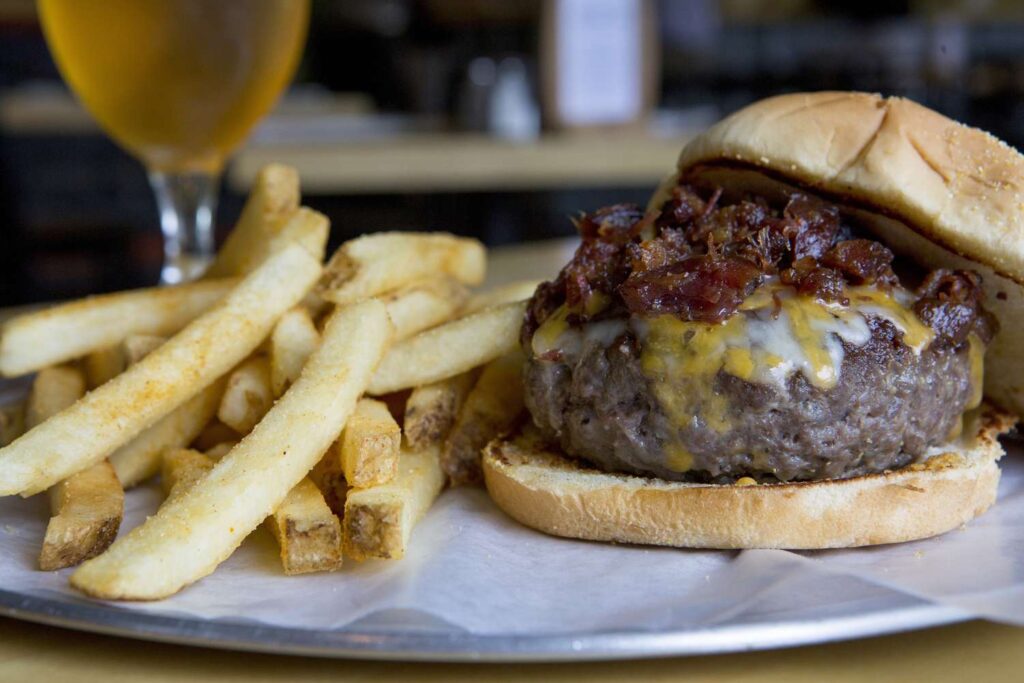The Problem May be Mother’s Diet:
Whether you are nursing your baby or not, your baby’s diet may be the cause of their colic. But if you are nursing, the problem may be in your diet. This article is about finding the offending foods, and about colic foods to avoid while breastfeeding.
If you are nursing, your baby’s colic may be due to something in your diet that is passing through your breast milk. Your baby’s intolerance may simply be dose-related. That is, perhaps you regularly drink one glass of milk with breakfast, or perhaps a single cup of coffee, without it bothering your baby. But when you drink more than that it results in a hurting baby.
Next Step: Elimination Diet for Mother
check-list for elimination diet
I won’t lie to you: conducting a careful elimination diet is a pain! But, if you have a colicky baby, I’m guessing that you would try just about anything to stop your baby from hurting. I think that Dr. Sears has a pretty good description of the process for an elimination diet.
Finding or tracking down the offending food(s) in your diet can be challenging. It will require patience, since it can take one or two weeks for some foods to clear your system. Of all the potential offenders, dairy products are the most common. Start there; if you eliminate dairy and your baby’s distress is no better, slowly re-introduce dairy to your diet, and move on to other foods. Use the check-list below.

Common Offending Foods:
Colic Foods to Avoid While Breastfeeding
- Beef
- Caffeine: coffee, tea, soda pop; chocolate
- Citrus fruits
- Corn
- Dairy
- Egg white
- Gassy vegetables: broccoli, cauliflower, cabbage, onions, peppers
- All nuts
- Peanut products
- Shellfish
- Tomatoes
- Wheat
Interestingly, many of these same foods worsen reflux – the other common cause of colic.
If you are thinking that your baby’s colic is caused by food sensitivity, it’s time for you to keep a food diary. If you have a colicky baby, you should already be keeping a log or diary of colic details: a Fuss Diary. You may already include your diet in that diary; if not, time to add your dietary details.
Note that if food sensitivity is causing a baby’s colic, it will usually be reflected in other signs of sensitivity or allergy: rashes, diarrhea, night waking, or other signs that persist even after the colic has passed.
Also note that sensitivity or allergy in a nursing baby, to foods in mother’s diet, will usually be shown in baby’s stools: frequent, green, mucousy stools (or conversely, constipation), accompanied by a red ring of inflammation around baby’s anus, all suggest food sensitivity. When the offending food product is eliminated, baby’s stools return to more normal, and the red inflammation disappears.
Soy is NOT the Miracle Cure
Breastfeeding is acknowledged as the ultimate nutritional source for infants. But some infants simply cannot be breast-fed. Most commonly, these babies will be fed formula based on cow’s-milk. If sensitive to cow’s milk allergens, these babies may become colicky. However, that does not mean to automatically switch to soy-based formula:
The American Academy of Pediatrics Committee on Nutrition cautions against soy formula for infants who are colicky on cow’s milk, because these babies are likely to also be allergic to soy! Their recommendations are not simple, however, and the detailed considerations are provided in publications from the Committee on Nutrition, listed below.
Babies with a true sensitivity or allergy to allergens in cow’s milk may tolerate one of the formula that contain hydrolyzed (pre-digested) proteins; these are less allergenic. If your baby is one of these, work with your baby’s doctor to find the formula that is right for your baby.

Is It Reflux or Is It Food?
Distinguishing Colic Caused by Reflux or Food Sensitivities
As mentioned earlier, a detailed history is crucial to the assessment of the fussy baby. Here are some of the clues that may tip your thinking toward reflux or food sensitivity as a cause:
- Colic from food sensitivity is usually not limited to a certain time of day, and will usually be associated with changes in baby’s stools.
- Colic from reflux is distinguished by regurgitation associated with clear signs of pain or distress: arching of the back, crying with the first swallows of feedings, as well as distress that is fairly consistent throughout the day.
The Evidence For Probiotics: Effective Alternative
A recent well-designed study compared probiotic (Lactobacillus reuteri, 100 million CFU once daily) to simethicone in breastfed babies with colic. Mothers were also put on a dairy-free diet. There was notable difference by the first week of treatment; this difference increased by the fourth week of the study, with 93% response in the probiotic group vs only 7% in the simethicone group. This study was published in 2007 in the journal, Pediatrics. Click here for the free down-loadable pdf, Probiotics for Colic. My conclusion? Regardless of the cause of your baby’s colic symptoms, probiotics won’t hurt, and are likely to help.
As always, I’m sure that I’ve missed something important, something that has worked for you. Please leave me a reply below so we can all benefit from your experience.
Resources:
Clinical study comparing Probiotics to simethicone, reported in journal, Pediatrics:
http://pediatrics.aappublications.org/content/119/1/e124.full.pdf
Hypo-allergenic infant formulas: Opinion of the American Academy of Pediatrics:
http://pediatrics.aappublications.org/content/106/2/346.full.pdf
Soy-based formulas: Opinion of the American Academy of Pediatrics:
http://pediatrics.aappublications.org/content/101/1/148.full.pdf
Great blog, The Boob Whisperer (how awesome is that name?):
http://theboobwhisperer.blogspot.com/2010/09/i-always-thought-that-breastfed-babies.html
More to read: Soothing Your Colicky Baby: Tips for Reducing Reflux